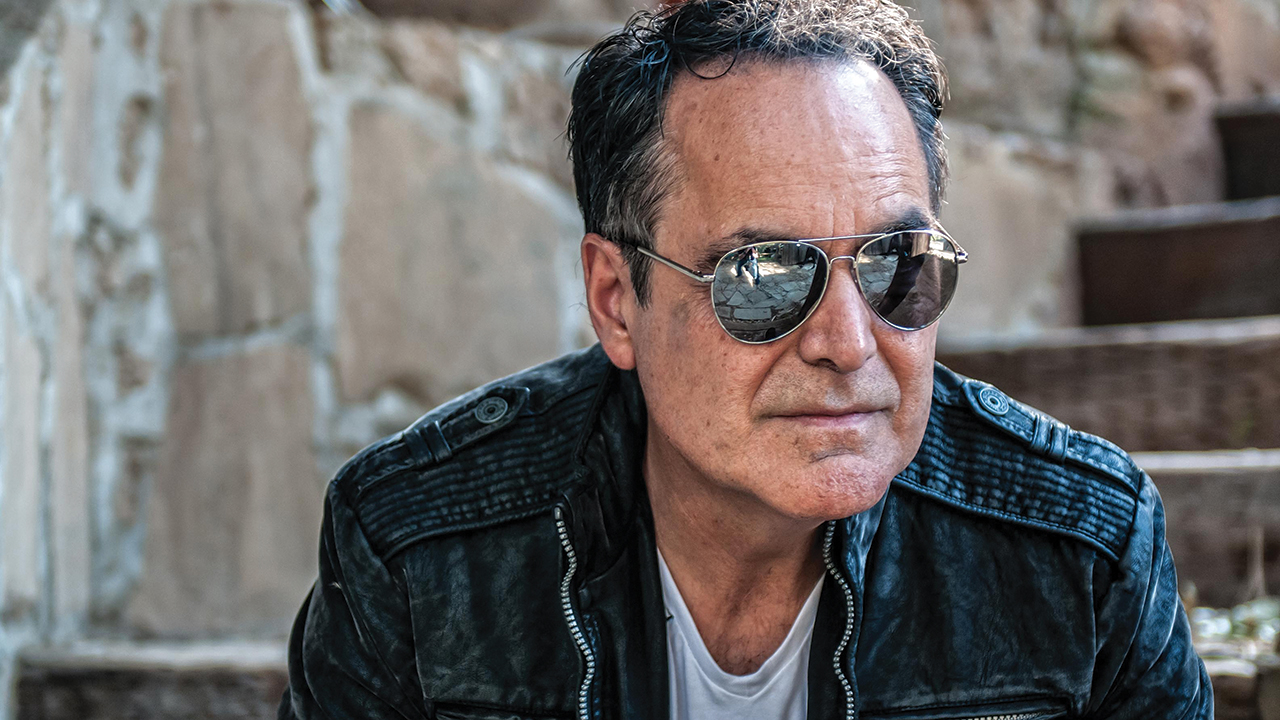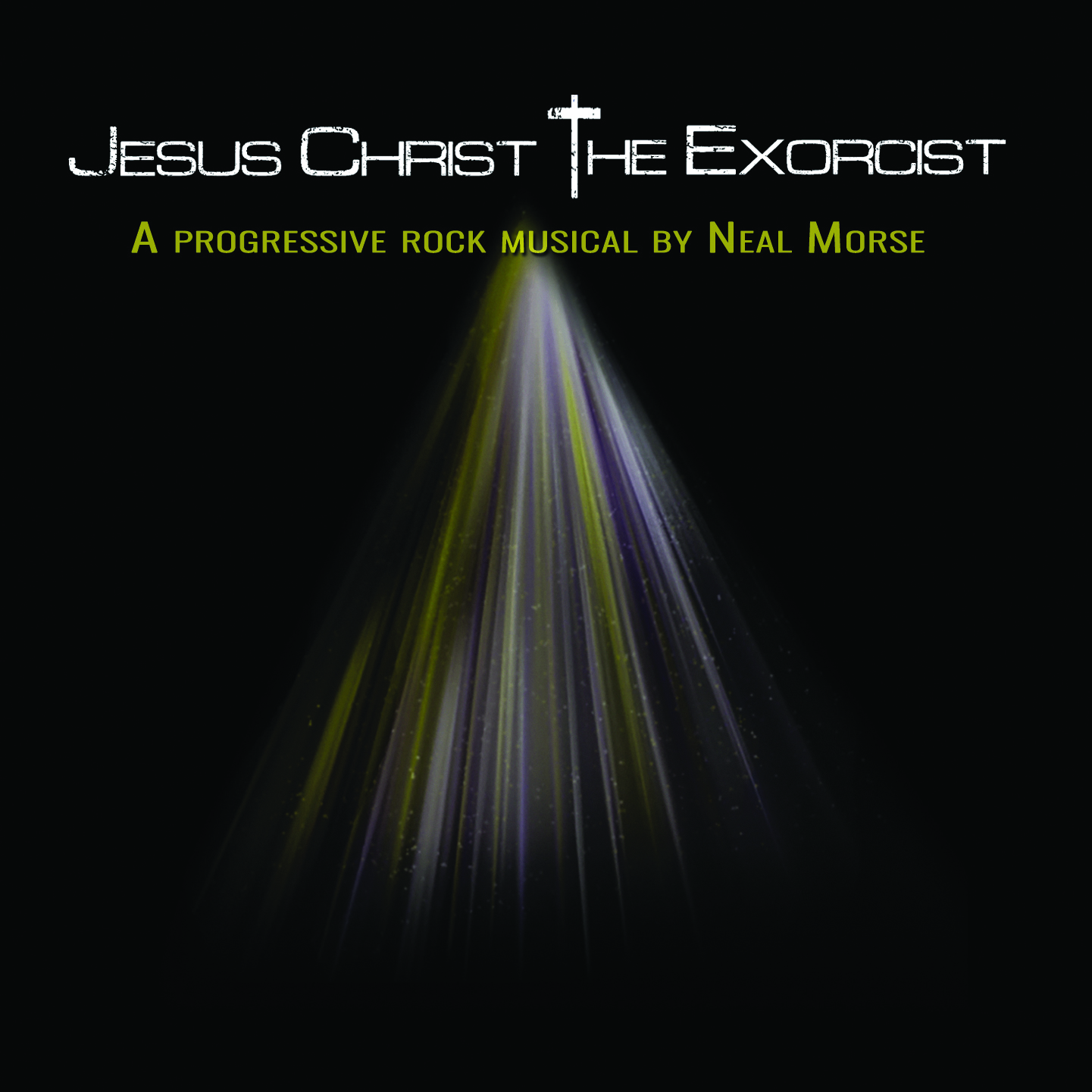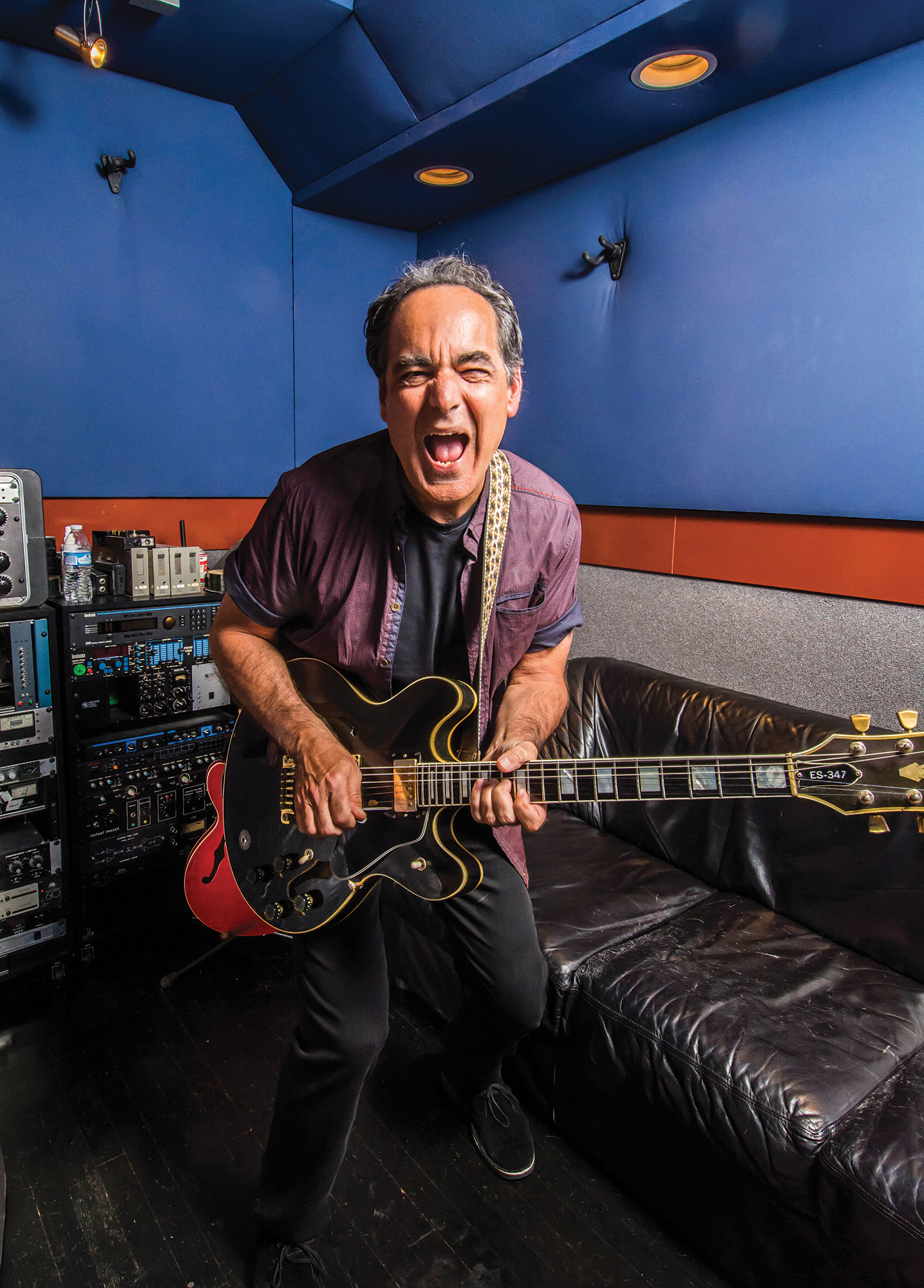
Fresh from his band’s latest epic The Great Adventure, the prolific Neal Morse returned in 2019 – this time with a mammoth prog rock musical based on the story of Jesus. It has been in gestation since 2008, so do good things come to those who wait? Prog spoke to Morse to find out more...
There’s only one person who can write a near-two hour prog rock opera double album about the story of Jesus and get away with it, and that person is Neal Morse.
Twenty-five songs, myriad guest musicians and a multitude of genres, Jesus Christ: The Exorcist is either a zap of divine inspiration or just the latest piece of prolificacy from the ever-busy mind of the former Spock’s Beard man.
Regardless of which side of the theological fence you may sit on, the rock opera is pretty much what you would expect – Broadway splendour intersected with moments of gung-ho prog adventurism, with plenty of Biblical messages slathered over the top.
“In the same way with a lot of the concept albums that I’ve written, it started off with a suggestion somewhere,” Morse says down the line from his home in Nashville, cheerful and chirpy.
No, not a suggestion from the Heavens above, but perhaps the next best thing – multi-instrumentalist friend and music business man Michael Caplan.
“He and his friend had been listening to Jesus Christ Superstar one night,” Morse explains. “He called me up the next day as they had said to each other, ‘Man, somebody should do a new thing like this – not an updated version, but a new rock opera based on the gospels.’ Michael leaped out of his chair and said, ‘I’ve got the guy!’”
That was back in 2008, though, with the first draft – written by Morse in around six weeks – sitting in the wilderness for years after labels and producers decided against taking the plunge.
“Michael had some bites from some producers but it never happened, and I moved on to do some other things, like Transatlantic’s The Whirlwind, Flying Colors and more Neal Morse and Neal Morse Band albums,” he continues. “I guess I kind of just put it on the shelf and waited for God to open a door. The really interesting thing that happened was we decided to put it on at Morsefest 2018 to play it live. The reason why we did that was because [long-time collaborator] Mike Portnoy was busy with Sons Of Apollo all year, so my wife and I were trying to think of what we could do that year that we wouldn’t need Mike for. When I thought about the Jesus musical I got really excited because I love it so much.”
After the gig was locked into the schedule, Morse started to rewrite and hone the draft, chopping the length down from two and a half hours, and it was during this time that the record secured a deal.
Featuring guests such as Spock’s Beard’s Ted Leonard and Nick D’Virgilio alongside Morse’s usual bandmembers like bassist Randy George and Eric Gillette on drums, the finished album is a melting pot of original demos tracked back in 2008 and a smattering of re-records.

Like with the majority of Morse’s solo work, though, you don’t need to be a believer to have your heart and head galvanised by the music.
The 10-minute Jesus’ Temptation is near-vintage Neal Morse, juggling key-driven, souped-up prog rock with masterful melody, while Judas’ Death launches with a flurry of demonic notes. The other side of the coin is the made-for-stage theatrics, with Free At Last, for instance, fit for a Disney love scene.
Jesus Christ: The Exorcist could seem like a midlife crisis detour for many, but for Morse it feels right, and part of his path. It was in the early 2000s when he infamously left Spock’s Beard and supergroup Transatlantic to devote his energy to Christianity, channelling God’s inspiration for solo music.
His journey started when he moved to Nashville and began attending the church his wife had been raised in, but it wasn’t until some first-hand experiences that he decided to dive into religion headfirst.
“I was in my 30s, and I have to say really what changed me was having this actual experience of the presence of God,” Morse says. “I’d never experienced anything like what was happening in that little Christian church. It began to draw me, I wanted more so I began to go more and more.
“My daughter was born with a heart condition and she was healed after the church prayed for her, and that really changed my heart, too. It made me start thinking that maybe God was good, instead of really being bitter at God, which was what I had been for most of my life. I just began to change and experience him in miraculous ways, and he began to answer prayers of mine. So I eventually gave my life to him, in the name of Jesus.”
It is pretty clear Morse has not looked back since finding himself at those crossroads. Concept album Testimony, released in 2003 after his conversion, outlined his transition to Christianity, and it has been a steady stream of acclaimed prog records and worship music ever since.
But his departure as a founding member of Spock’s Beard and Transatlantic, leaving two groups behind at perhaps the height of their prowess, raised eyebrows in sections of the prog community, and it still continues to follow him like a shadow years later.
Morse admits that he had pangs of doubt throughout the whole process
of going solo, and although he has since worked again with the two groups, it still seems to prick at his mind.
“It was one thing to pray about whether we should buy this new house, or the direction for our family, but this was a big deal,” he says, with some amount of sincerity.
“This was going to affect a lot of people. Quitting the bands was a big deal – that was our livelihood. How are we going to pay the rent, what’s going to happen with the band, the audiences, the record companies? There was a lot at stake.
“I was miserable. It was rough and I was questioning it all the time. I fasted for days, and I didn’t get any more of an answer than I already had, which was ‘trust me’. I wanted to know more than that. But he showed me things. He let me know. He let me know I was on the right path in ways that are maybe difficult to define.
“It was one of the biggest things that’s ever happened to me, or that I’ve ever done. I testify about it a lot at church, because it was my Garden of Gethsemane moment. It was like I was giving it all up. I didn’t know that he was going to give me the Testimony album – that was months later. I was just giving it all up and fully surrendering and it’s been just absolutely incredible in every way. He’s taken such good care of my family – we’ve never had to worry about money really. And he’s blessed me abundantly creatively above all I could ever imagine.”

Morse was born in 1960 and grew up in Los Angeles with a choir director and music teacher father, who would tutor his children – aged as young as four – on how to sing harmonies. You can tell, with lush, multi-layered vocal textures an intrinsic part of Morse’s sound alongside a studious grasp of dynamics and songwriting.
In his teenage years the musician spent a lot of time “getting stoned and listening to progressive rock albums”, with Yes, Jethro Tull and Emerson, Lake & Palmer among the LPs getting spins. It was the former, meanwhile, that truly opened his eyes to prog.
“When I saw Yes I felt like they incorporated everything I loved about music into one thing,” he recalls, mind strolling back to the 70s. “I saw them play live when I was 12, opening up for Black Sabbath in Los Angeles, and they really changed my mind. I was raised with all this classical music and some jazz, and I loved the power of rock and I felt like Yes particularly embodied everything that I loved about music.”
During our interview Morse receives a message from Flying Colors singer Casey McPherson. They are in the middle of writing lyrics for the prog supergroup’s third album – “It’s really fun, man” – in the rare moments of downtime the musician has from his solo work.
And he is somehow not too busy to also be considering returning to work again with Transatlantic, whose last album, Kaleidoscope, was released over five years ago. “We’re talking about it,” Morse subtly says, like holding a close-guarded secret. “We are in discussions, but nothing’s nailed down yet.”
It is clear Morse still has many fingers still in many pies, and he has hopes of touring Jesus Christ: The Exorcist around the world, for a week in different locations like England, Germany and New York. “I think you need probably around 20 people to
pull it off,” he admits. “You need six musicians and six singers at least, and that would be the bare bones. But it’s really going to depend on whether it finds an audience.”
The album is being released mere months after the Neal Morse Band’s latest epic, The Great Adventure, which he also toured around the world in the spring. 2018, meanwhile, was just as busy.
Whether he is an enviously talented workaholic or divinely inspired is a discussion for another day, but you get a feeling the mammoth Jesus Christ: The Exorcist is just par for the course for the prolific Morse. But with so much output, does he ever worry his inspiration might run dry?
“I used to, but I don’t really any more,” he says. “I get concerned sometimes if I feel like maybe we’re shortchanging something, like if I feel we’re in too much of a hurry and we’re not really giving the piece of music the attention that it deserves. There’s a tendency that I have to just want to finish things. I think it’s a strength, but it can be a problem, too. That’s something that I get cautious about – I really have to stop and pray and say, ‘Hey, don’t be in such a hurry. Let’s make sure this is right’.
“I hope I don’t ever dry up. To me, every moment of creation is a miracle. Every time I just sit down and play something and go ‘that’s cool’, and I sing something over it, and then I’ll think of a lyric for it, or something will sort of drop into my mind when I’m in the car, or when I’m swimming with my grandkids. These random times these things will just drop into my mind, and then somehow it will come back to me when I’m writing and fall into place in a real miraculous way. Whether it’s a simple song with three chords or a really elaborate epic piece, it’s all miraculous to me. I’m amazed with God and I’m amazed with the whole process. To me, it’s still kind of magical.”







